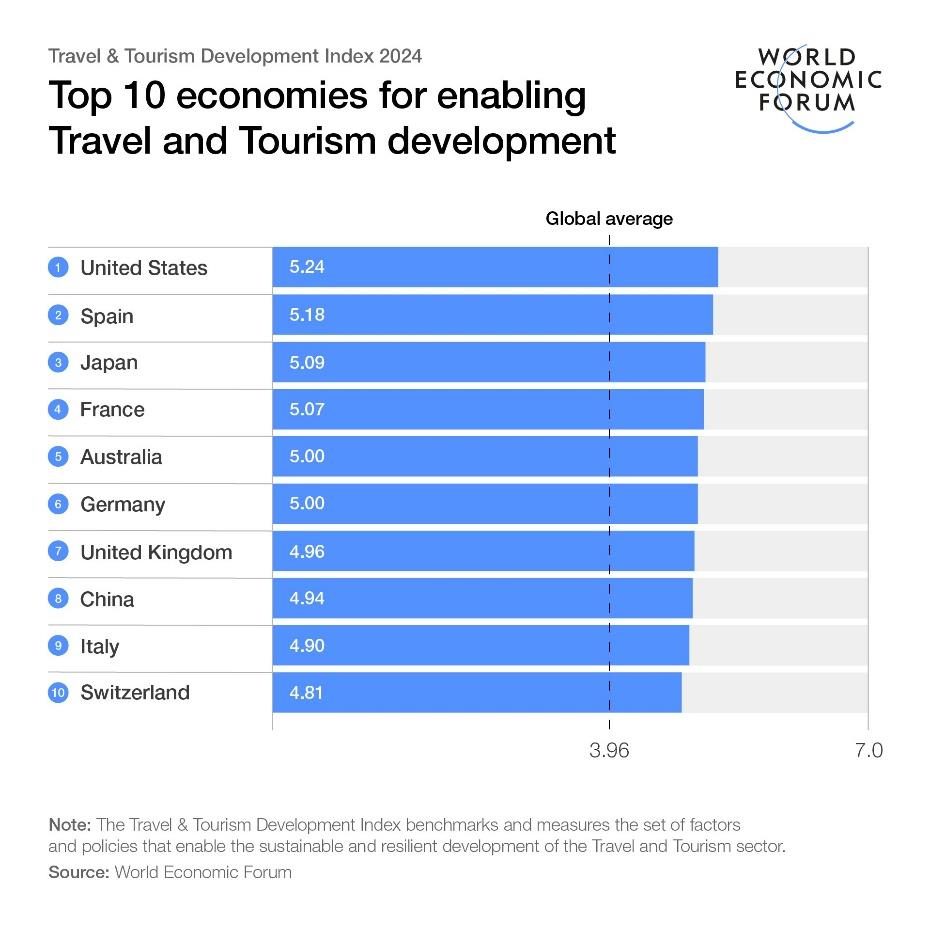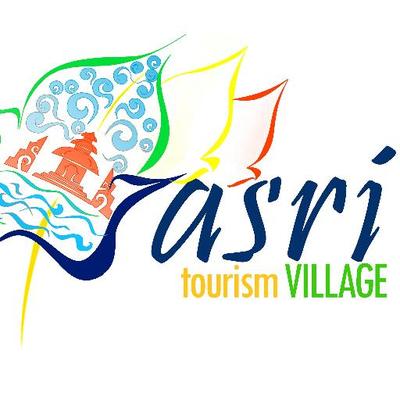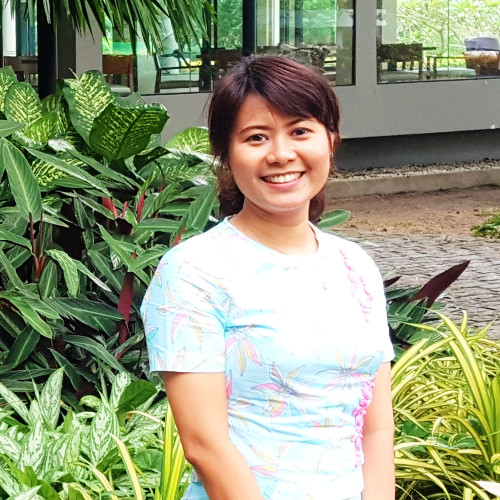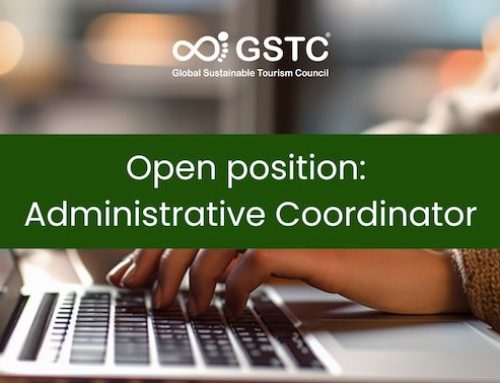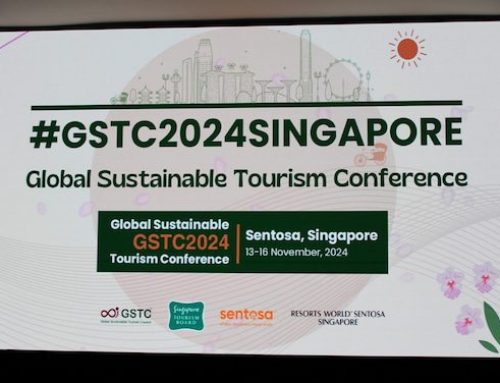High-income economies in Europe and Asia-Pacific continue to lead the World Economic Forum Travel and Tourism Index, with the United States, Spain and Japan topping the rankings again.
- Despite post-pandemic growth, the global tourism sector still faces complex challenges, with recovery varied by region; only marginal overall score improvements since the 2021 edition.
- Developing economies are making strides – who account for 52 out of 71 economies improving since 2019 – but significant investment is needed to bridge gaps and increase market share.
- Read the report here.
International tourist arrivals and the travel and tourism sector’s contribution to global GDP are expected to return to pre-pandemic levels this year, driven by the lifting of COVID-19-related travel restrictions and strong pent-up demand, as per the new World Economic Forum travel and tourism study, released yesterday.
Topping the 2024 list of economies are the United States, Spain, Japan, France and Australia. The Middle East had the highest recovery rates in international tourist arrivals (20% above the 2019 level), while Europe, Africa and the Americas all showed a strong recovery of around 90% in 2023.
These are some of the top findings of the Travel & Tourism Development Index 2024 (TTDI), a biennial report published in collaboration with the University of Surrey, which analyses the travel and tourism sectors of 119 countries around a range of factors and policies.
“This year marks a turning point for the travel and tourism sector, which we know has the capacity to unlock growth and serve communities through economic and social transformation,” said Francisco Betti, Head of the Global Industries team at the World Economic Forum. “The TTDI offers a forward-looking window into the current and future state of travel and tourism for leaders to navigate the latest trends in this complex sector and sustainably unlock its potential for communities and countries across the world.”
Post-pandemic recovery
The global tourism industry is expected to recover from the lows of the COVID-19 pandemic and surpass the levels seen before the crisis. This is largely being driven by a significant increase in demand worldwide, which has coincided with more available flights, better international openness, and increased interest and investment in natural and cultural attractions.
However, the global recovery has been mixed. While 71 of the 119 ranked economies increased their scores since 2019, the average index score is just 0.7% above pre-pandemic levels.
Although the sector has moved past the shock of the global health crisis, it continues to deal with other external challenges, from growing macroeconomic, geopolitical and environmental risks, to increased scrutiny of its sustainability practices and the impact of new digital technologies, such as big data and artificial intelligence. In addition, labour shortages are ongoing, and air route capacity, capital investment, productivity and other sector supply factors have not kept up with the increase in demand. This imbalance, worsened by global inflation, has increased prices and service issues.
TTDI 2024 highlights
Out of the top 30 index scorers in 2024, 26 are high-income economies, 19 are based in Europe, seven are in Asia-Pacific, three are in the Americas and one (the United Arab Emirates) is in the Middle East and North Africa region (MENA). The top 10 countries in the 2024 edition are the United States, Spain, Japan, France, Australia, Germany, the United Kingdom, China, Italy and Switzerland.
The results highlight that high-income economies generally continue to have more favourable conditions for travel and tourism development. This is helped by conducive business environments, dynamic labour markets, open travel policies, strong transport and tourism infrastructure, and well-developed natural, cultural and non-leisure attractions.
Nevertheless, developing countries have seen some of the greatest improvements in recent years. Among the upper-middle-income economies, China has cemented its ranking in the top 10; major emerging travel and tourism destinations of Indonesia, Brazil and Türkiye have joined China in the top quartile of the rankings. More broadly, low- to upper-middle-income economies account for over 70% of countries that have improved their scores since 2019, while MENA and sub-Saharan Africa are among the most improved regions. Saudi Arabia and the UAE are the only high-income economies to rank among the top 10 most improved economies between 2019 and 2024.
Despite these strides, the TTDI warns that significant investment is needed to close gaps in enabling conditions and market share between developing and high-income countries. One possible pathway to help achieve this would be sustainably leveraging natural and cultural assets – which are less correlated with country income level than other factors – and can offer developing economies an opportunity for tourism-led economic development.
“It’s essential to bridge the divide between differing economies’ ability to build a strong environment for their travel and tourism sector to thrive,” said Lis Tussyadiah, Professor and Head of the School of Hospitality and Tourism Management at the University of Surrey. “The sector has big potential to foster prosperity and mitigate global risks, but that potential can only be fully realized through a strategic and inclusive approach.”
Mitigating future global challenges
According to the World Economic Forum’s 2024 Global Risks Report, the travel and tourism sector faces various complex risks, including geopolitical uncertainties, economic fluctuations, inflation and extreme weather. Balancing growth with sustainability also remains a major problem, due to high seasonality, overcrowding, and a likely return of pre-pandemic emissions levels. The report also analyses persistent concerns about equity and inclusion. While the tourism sector offers a major source of relatively high-wage jobs, particularly in developing countries, gender parity remains a major issue for regions such as MENA and South Asia.
Despite these challenges, the sector can play a significant role in addressing them. To achieve this, decision-makers should prioritize actions such as leveraging tourism for nature conservation efforts; investing in skilled, inclusive and resilient workforces; strategically managing visitor behaviour and infrastructure development; encouraging cultural exchange between visitors and local communities; and using the sector to bridge the digital divide, among other policies.
If managed strategically, the travel and tourism sector – which has historically represented 10% of global GDP and employment – has the potential to emerge as a key contributor to the well-being and prosperity of communities worldwide.
About the Travel and Tourism Development Index 2024
The 2024 edition of the TTDI includes several improvements based on newly available data and recently developed indicators on the environmental and social impact of travel and tourism. The changes made to the 2024 Index limit its comparability to the previously published TTDI 2021. This year’s report includes recalculated 2019 and 2021 results, using new adjustments. TTDI 2024 reflects the latest available data at the time of collection – end of 2023. The TTDI is part of the Forum’s broader work with industry communities actively working to build a better future enabled by sustainable, inclusive, and resilient industry ecosystems.
Read the original press release here: https://www.weforum.org/press/2024/05/tourism-is-back-to-pre-pandemic-levels-but-challenges-remain/
The GSTC Criteria

They are the result of a worldwide effort to develop a common language about sustainability in tourism. They are categorized in four pillars: (A) Sustainable management; (B) Socioeconomic impacts; (C) Cultural impacts; (D) Environmental impacts.
The GSTC Criteria are the starting goals that businesses, governments, and destinations should achieve. Tourism destinations each have their own culture, environment, customs, and laws. Therefore, the Criteria are designed to be adapted to local conditions and supplemented by additional criteria for the specific location and activity.
There are three sets of Criteria
- GSTC Industry Criteria = relates to the sustainable management of private sector travel industry, focusing currently on Hotels and Tour Operators.
- GSTC Destination Criteria = relates to sustainable management of Tourism Destinations.
- GSTC MICE Criteria = relates to sustainable management of Venues, Event Organizers and Events & Exhibitions.
Learn more about Sustainable Tourism
The GSTC website offers those interested in learning more about sustainable tourism the needed resources. Make sure you visit the relevant pages for you:
- For Hotels & Accommodations
- For Tour Operators
- For Governments & Destinations
- For Corporate and Business Travel
You can also join one of the regular GSTC courses:
- Want to gain in-depth knowledge of the GSTC Criteria and understand sustainable tourism? The GSTC Sustainable Tourism course is for you.
- Are you a hotelier or work in the hospitality sector? GSTC Sustainable Hotel course
| Dates | Course ID | Location / Format | Trainer(s) | Live Session Time | Language | Price | Register |
|---|---|---|---|---|---|---|---|
| Nov 18 – Dec 13, 2024 | ST-2411-EN | Online | Antje Martins, Ayako Ezaki | 11:00 CET (UTC+1) | English | Starting at USD 395 | |
| Jan 13 – Feb 21, 2025 | ST-2501-EN | Online | Nia Klatte, Ayako Ezaki | 19:00 CET (UTC+1) | English | Starting at USD 395 | |
| Mar 13 – Apr 11, 2025 | ST-2503-EN | Online | Nia Klatte, Ayako Ezaki | 9:00 CET (UTC+1) / 9:00 CEST (UTC+2) | English | Starting at USD 395 | |
| 23 de Abril – 23 de Mayo, 2025 | ST-2504-ES | Online | Jorge Moller, Natalia Naranjo | 17:00 a 18:30 hrs Madrid (CEST, UTC+2) | Spanish | Starting at USD 200 | |
| Apr 24 – May 23, 2025 | ST-2504-EN | Online | Nia Klatte, Ayako Ezaki | 19:00 CEST (UTC+2) | English | Starting at USD 395 | |
| May 22 – Jun 20, 2025 | ST-2505-EN | Online | David Ermen, Ayako Ezaki | 9:00 CEST (UTC+2) | English | Starting at USD 395 |
Tourism is one of the biggest consumers natural resources. Tourism has numerous negatives, but also positive consequences for the environment. We can have positive effects, only under the condition that we tourism develop in a planned manner and in the principles of sustainable development. So my goal, as a professional, is to improve sustainable tourism development in Bosnia and Herzegovina and Republic of Srpska, and also to learn from other countries experience. I find very useful lectures in this program based on sustainable principals and on the SDGs. I will plan and design tourism development in my future work in a manner that takes care for environment, local people (communities) and economy. This GSTC training was very useful for me and my organization because we would like to create tourism destinations in our country with happy people and happy communities, to protect nature and of course to create a new jobs. Sustainable tourism refers to the environmental, economic, and socio-cultural aspects of tourism development and a suitable balance must be established between these three dimensions to guarantee its long-term sustainability. The GSTC training has given me a lot of knowledge about sustainability and I recommend all professionals in tourism to come and join this trainings.
I loved every piece of the training, very insightful, well done by the presenters and the trainers! It gives us much more credibility to talk about sustainable tourism.
I had an insightful experience with the course that significantly enhanced my awareness of key areas for improvement. The structure of the feedback process was excellent, making it easy to articulate concerns and suggestions. Additionally, the clear communication throughout demonstrated a thoughtful and organized approach. Overall, the course was not only informative but also highly engaging, providing a valuable platform for personal and professional growth. I highly recommend it!
The overview of standards, coupled with best practice and real world examples has been very beneficial for my work in destination management and responsible tourism development. The ability to meet likeminded industry colleagues, who are working in this arena was also highly valuable.
This course provided me with a thorough understanding of how to implement sustainable travel practices. I will definitely integrate information from this training into my work with travel organizations and destinations to help them achieve short-term progress through a long-term strategy.
The GSTC training is very useful for everyone in our efforts of future sustainability. The GSTC criteria guide us towards the best practices and enable us to monitor the progress of each important task.
I would strongly recommend GSTC training to all types because it sets a baseline for future sustainability efforts.
I’ve participated in the course to get a comprehensive overview of destination sustainability criteria. Much more than this, the course gave me the up-to-date analysis of current trends, and a huge number of relevant cases from the destinations, the industry networks and the service providers. I strongly recommend to attend the course.
This GSTC course has really inspired me to promote sustainable travel in all aspects of my life, not just my work. The mix of backgrounds and job roles on the course was great and helped me think of sustainable travel from different angles.
A complete holistic approach to sustainable tourism. The comprehensive lessons given each week break down the GSTC Criteria and are paired with practical examples, international experts and ‘hands on’ online workshops. The opportunity to discuss and share insights from all the participants around the world not only contributes to my own knowledge but to also my professional network. I highly recommend this course for anyone discovering sustainable tourism.
The course is quick and handy way to immerse in the issues of Sustainability in Tourism and a great kick start in starting your own business or destination program. I could have had the course even longer and especially the live sessions were great to get to know some of the other participants and share their knowledge and experiences – best practices are the best way to get started and to get valuable information. Highly recommended!
The [GSTC course] has been a remarkable learning experience and a great introduction to sustainable tourism. The combination of online resources, discussion forums, weekly live events with guest presenters provides a deeper understanding and useful tools in sustainable tourism. The trainers have incredible expertise in both tourism and sustainability and share their knowledge and passion about current sustainability practices. I would highly recommend this course to everyone involved in the tourism industry or have a interest in sustainable tourism.
GSTC training is a great starting point in the way to sustainability. As an advisor for tourist destinations, the knowledge acquired through this course will definitely enrich my services. My clients will benefit now from the GSTC guidelines.
The GSTC training was a great way to connect, network, and engage in mind-broadening and eye-opening discussions with others in the diverse field of sustainable tourism. I would highly recommend this as a starting point for anyone interested in the journey of regenerative and sustainable tourism.
I loved the GSTC Tourism course, it had great information and allowed for wonderful interactions with other industry professionals from around the world.
Very relevant to how the industry should be moving and focusing to become a more responsible and equitable industry.
The course format is training portal is really user friendly and easy to follow. The sessions were informative and demonstrated the GSTC criteria in action via some great guest speakers and case studies on travel businesses that are having a positive impact and creating change in their destinations.
The GSTC course was really great to me because it gave me an in-depth knowledge about sustainable tourism. The combination of the criteria explanation and the presentation from other experts was really great, as it gave us the know-how, lots of samples and case studies. Before joining this course, I had heard about the term sustainable tourism many times, but [was not sure] what it is all about and how we can achieve it. I am glad to have gained the bigger picture of sustainable tourism. I’m developing my village to be a community based tourism destination, and now I can adopt and apply the standard locally.
What I liked the most about this course is the well-defined structure, the opinion sharing with online classmates, and the up-to-date topics. It makes the experience much more effective and enjoyable.
The GSTC training provided me with a deep understanding of the criteria. My fellow classmates were industry experts in various sectors from around the world, bringing the criteria to life with valuable examples/discussions of how they have implemented the very practices we were learning.
A very informative course and well organized by excellent teachers. It was also very rewarding to “meet” people in the tourism industry around the world and unite in the interest and knowledge regarding sustainable tourism. I would definitely recommend this course to everybody involved in tourism.
I’ve always tried to improve and learn about modern methods of preservation, to practice sustainable tourism, and to better apply my knowledge with my team.
With my participation in this course, I was able to understand the GSTC criteria and how best to apply them in my daily life in a didactic way.
The GSTC and their standards, which I once followed only online and through literature, have suddenly become a reality in which I can actively participate. I am glad that, together with my course colleagues, I will have the opportunity to contribute to creating a better, more responsible world for the future of humanity.
This is a one-of-a-kind course that provides the tools in getting you started. Not to mention, you’re also collaborating with people and organizations across the globe facing similar challenges. The feedback from fellow students was invaluable and honestly, what better way to tackle some big challenges related to the environment than with people from different countries and backgrounds. I’d take this course again just for those connections!
The one thing that is great with this course is the ability to not only hear guest speakers and trainers about their experience and knowledge but also have discussions among the participants with a variety of backgrounds. This has been very useful in terms of broadening my scope to set a foundation for the journey towards sustainability in Malaysia’s tourism industry.
Useful and inspiring! The way the course is organised with lots of practical experience from colleagues in the tourism sector is indeed the most useful and interesting part of the course, [making it easier] to approach the GSTC criteria.
I find the program very balanced, combining very interesting keynote speakers with a case related to the subject and practical group exercise.
I am glad that I attended this course. From a learner’s point of view, it was a very rich learning journey, and the content of the course, as well as the guidance and leadership of the instructors, were all worthwhile learning objects. The interactive discussions among the participants have inspired me to broaden my horizons and worldviews, the case studies have shown me how to implement the GSTC indicators in the real world, and the case studies have given me a lot of practice. It is highly recommended for those who are experienced or inexperienced in sustainable tourism to join this learning experience.
The GSTC training has been very inspiring and relevant, an excellent programme providing in-depth knowledge of the GSTC criteria for sustainable practices together with al lot of real life examples.
I would really recommend the course to all industry professionals who is serious about making sustainable impacts for a better travel and hospitality industry.
I found this online course well structured and enjoyable. The trainers are really inspiring, extremely knowledgeable about the field and very supportive. The live online sessions give a great introduction to key topics, and there are online lessons, discussion forums and reference material to deepen knowledge. I feel like I have access to so much wisdom, and it is great to be part of a global community of sustainable tourism practitioners.
The GSTC Sustainable Tourism Training Program provided an up-to-date perspective and holistic approach on the topic. I really enjoyed taking part in the group discussions and hearing about the realities of other destinations and their challenges.
Participating in the GSTC course was a great way for me to connect with the current trends in the sustainable tourism sector. In addition to spending time reviewing all of the criteria of the GSTC Industry Criteria, we were also given myriad resources to further research, and people to network with. While I have worked in the field for many years, it was a wonderful new perspective offered by people who are deeply embedded within the sector and very knowledgeable about the scope of the industry today. I would highly recommend this course to people who are just learning about sustainable tourism, but also to people who are looking to gain further knowledge and/or connections.
The training gave me a clear understanding of the challenges we face and the actions to take to make sustainability effective, [covering] each of the main areas in a systematic way with enough technical detail for those who needed it, without losing the less technical trainees (like myself) who needed to understand the broad overview of sustainable tourism practices
I would definitely recommend GSTC training to absolutely everyone in the tourism industry. The entire [GSTC] framework is extremely useful and important – a framework of values and ideas that is evolving, and that is meant for us a roadmap to make things better for people and companies that may be starting from different points in the journey towards sustainability.
A great opportunity to discover how small actions and the right approaches can significantly enhance local experiences and positively impact the future of a local community.
My course facilitator and teacher (Ayako and Antje) went above and beyond to answer our questions and provide us with additional resources. The course content (the GSTC Criteria) was delivered in an understandable and organized way. Learning the GSTC Criteria and how it applies to our own projects, businesses, and destinations is integral to anyone wanting to do any kind of work in the future centered around travel. I appreciated that the course was delivered in an interactive way over Zoom, and not just something we watched on YouTube. For me, being able to interact with fellow students from around the world, was a big plus. Was well worth it, and I highly recommend the course!
This course has given me an approach to the GSTC Criteria, where the basic and complete structure to move forward on sustainable paths is visualized. The reflections generated through real examples, discussions and available material are key to better internalize what sustainability means. Ideas applicable to our business and our work area appear during the course that contribute positively to one’s reality. I will recommend this course, for its contribution to the objective, honest and constructive understanding of what sustainability is.
The quality of this training was really first class; materials, presentations, trainer support, resources and discussions. The forum helped keep everything relevant and up to date, and I also liked the format of the live events. All guest presenters were excellent; I liked that they were sharing real life experiences and not just theoretical examples. From each and every live presentation I gained ideas, reinforcements to my own experiences and enthusiasm for what I and my colleagues are doing in our own part of the world.
This is an excellent intro course, well prepared and well delivered. It provides comprehensive coverage of key issues, real life examples and good practice from across the industry. Instructors are knowledgeable, responsive and easy to follow. Presentations by guests speakers are also very interesting and illuminating. I highly recommend.
It was a great learning experience, very practical and applicable in real life. The trainers are always available, caring and attentive. The participants are of a high level, and the notion of “learning by sharing” is taken seriously.
I feel ready to use the GSTC Criteria for my personal project but also to support other professionals in my region.
An excellent course, very well designed and structured, challenging with great support from the trainers. The practical insights I gained will help me in my future project to embed sustainability in educational projects.
The GSTC course was a great way to learn more about Sustainability, what it means, different aspects of it and how to create a plan to start!
As someone relatively new in this topic, I found the information extremely helpful and educational. The guest speakers were inspiring and aspirational, and all of the group discussions and comments were really enriching. Thank you GSTC for creating such wonderful content!
My first impression was the organization, it was perfect regarding the admin efforts and the learning tools. The course materials were really useful, as well as the live sessions from which I gained a deep understanding and experience from the other participants. I really want to have the chance to thank all the team who was involved, and of course I would recommend people working in the tourism industry to join this course
The course is excellent as it combines and insight into how to address the criteria, and with examples from the field and interactive sessions it truly expands the understanding not only of the standards as such but of the overall sustainability in tourism. The fact that the group is diverse, both geographically and background and experience of the participants, brings additional quality.
I enjoyed the weekly presentations and discussions. I learnt a lot from experiences from other participants. The learning by doing approach during Thursdays helped a lot in trying to apply what I learnt on Mondays.
Taking the GSTC training at this point in time was extremely valuable. It gave me a sustainable tourism framework to help assess what I’ve been able to accomplish and also consider the role that sustainable experiential travel may mean as we begin to inch our way out of the world of zero tourism towards something likely new and different. One other great benefit of the training was starting to get acquainted and sharing with other participants and instructors from around the globe. These connections will be valuable for a very long time to come.
The course provides for the great experience of knowledge and skills upgrade. Video materials and resources of lessons contribute to solid foundations for further discussions during training sessions. Live sessions indeed work to the benefit of better understanding and creative practicing of GSTC criteria. I got a clear vision of the steps available from best practices and experience exchange with coursemates.
The GSTC training was a great first touch point for me into the world of sustainable tourism and destination management. I loved hearing case studies from around the world and real life examples on how the GSTC criteria can make a difference. The course has enabled me to start building on these criteria within my job.
A great training program that gives the participants a thorough understanding on the sustainable management of both destinations and individual businesses. Anyone from the industry – from the business or the government side – should understand the bigger picture of the destination level management as well as the industrial level so that both public and private sectors can work together for a more sustainable tourism industry.
Hearing about actual destinations applying Sustainable Tourism initiatives and learning from real situations practicing Sustainable Tourism, as well as the related successes and challenges, was very informative and valuable. My favorite part was the unexpected camaraderie from and connections with the other participants. I genuinely enjoyed the online discussion, sharing of ideas, and breakout groups and, overall, meeting so many others who she a passion for Sustainable Tourism. Thank you, GSTC, for a great course!
The GSTC training provides a comprehensive overview of key indicators for a holistic view of sustainable tourism. The training provided an excellent opportunity to network with other tourism professionals, and to share ideas, develop plans, and comment on sustainable tourism initiatives that are being implemented in a diverse array of locations globally. I’m grateful for the connections that I made and for the helpful feedback on ideas for improving sustainability in several operations.
As a consultant it was great to learn about the bigger framework, a global standard of sustainable tourism where even ceritfying bodies draw from. I loved the interactive elements with ‘classmates’ to learn about their destinations and experiences. I for sure will reshape my work with my new refined knowledge!
The Global Sustainable Tourism Council (GSTC) is the most widely recognized institution for offering sustainability courses for tourism professionals.
Amazing learning experience. Exceeded my expectations by far. Excellently organized and facilitated. Great dynamics in discussions with course participants – so much to learn from. Highly valuable best practices and interactive modules really made the best learning experience I had until now! It really motivated and inspired me to continue on the road of global sustainable tourism.
The STTP programme has been a good introduction to the principles of sustainable tourism. It was a good mix of presentations and cases of sustainable tourism in real-life, insights from experts from various countries and across tourism sectors and explanation of key GSTC criteria. Participants were encouraged to share their experiences and observations through discussion forums and presentations, which made the sessions more lively. The final exam is recommended for those who wish to test their ability to put these principles to practice. I highly recommend this course to tourism industry professionals wishing to incorporate sustainable tourism management at work.
The training has really opened my yes to all the great work that is being carried out already by different countries for sustainability tourism development and also showed me new tools and strategies that need to be highly considered when transforming the industry into a sustainable one and how best to work with stakeholders in this regard.
The course is very interesting and well designed. With very professional speakers, it gives you a lot of insights and the possibility to work on real cases.
The GSTC Sustainable Tourism course was a holistic, digestible, and engaging opportunity. As a busy professional, the pace and length of course was very thoughtful and the combination of live sessions, networking with tourism professionals, expert guest presenters, small breakout sessions, videos, quizzes, links to a plethora of resources, and discussion forums ensured that I could make the most out of my investment in the course. Antje and Ayako were a fabulous duo ensuring fresh content and real world examples. They also were very inclusive of the entire cohort and its contributions to the learning process, and kept the course moving forward – it was a real treat to experience their facilitation and instruction. I will absolutely use the GSTC Criteria (especially those handy checklists!) when engaging destinations, tour operators, hotels, and travelers alike.
This course takes a comprehensive approach to integrating sustainability practices into the tourism industry. The perfect way to dive into this topic is through a blended modality that mixes theoretical and practical approaches and this is exactly what happens in this course.
I can only highly recommend the course for every travel and tourism professional- it is a great motivational boost to get into action and helps me support destinations in bringing the idea of destination stewardship – an inclusive and holistic approach – alive. We do not need more and more tourists, we need sustainable tourism.
The course was very inspiring! The lectures and case studies helped me to deepen my knowledge of sustainable tourism. The interaction with the other students was very interesting. The organisation was smooth, which helped me to study and work at the same time. I am sure this course will be very useful in my work!
It can be daunting to work on your business and operation strategy in order to become a more sustainable organization, so this course is definitely needed in learning how to get started.
You will gain inspiration from other entities, ability to create global connections with others in the industry that have the same focus, and great resources to guide you as you build up your own strategy.
This is a very complete, interesting course for anyone in Sustainability to take. There’s global networking, great examples of people leading change and sharing ideas for future collaborations. It gave me a closer look into how to approach the different aspects that constitute a businesses in different industries as well as destinations. It opened my mind to new fresh ideas.
I think the training was very useful and gave me many insights that I will use in my daily work to develop more sustainable tourism. The training class was also a good group for networking.
The GSTC course exceeded my expectations. Working on case studies with colleagues from diverse backgrounds was a highlight, as we were able to share experiences and learn from each other. The examples provided were very helpful and sparked new ideas for my own projects.
Excellent course that sets the foundations for sustainable tourism practice.I was very new with sustainable tourism and now after the course I have very solid understanding and skills to apply to my job. In addition, the amazing network of professionals sharing ideas is another great tool!
This course has been very relevant and provides in-depth knowledge of GSTC criteria for sustainable practices for destinations as well as the travel industry [with] plenty of real life examples and share links to plenty of reading material throughout the course. … As we move forward during these difficult COVID times, learning our lessons on the damage to nature, it becomes all the more important for industry professionals to get trained and step up efforts to embrace sustainability in all aspects of tourism. Hence, I recommend this course to all industry professionals.
The GSTC Sustainable Tourism Training gave me the tools and network to be able to work for a more sustainable tourism sector in the area where I’m based (South Sweden). The structure with the four principles makes it easy to follow and to discuss also outside the GSTC world. The examples from the other participants were great, and we will continue sharing good and bad examples from destinations all over the world.
Pour moi c’était très honorable d’avoir assisté au cours de tourisme durable selon les critères internationaux en matière de durabilité du conseil mondial du tourisme durable GSTC ces critères tiennent compte de tous les objectifs du développement durable ODD et qui sont applicables aux piliers environnemental, social et économique culturels et intégration au sein de la communauté et destination touristique locale. Les chers formateurs Madame AYAKO EZAKI et Mr David sont géniaux en matière de formation, enseignement, éducation c’est grâce à eux que j’ai amélioré mon niveau de connaissance en matière de durabilité et au sens de responsabilité durable . _ Merci infiniment aux collaborateurs qui ont aussi bien partager leurs expériences très favorables pour nous bien expliquer comment bien appliquer et intégrer les critères du GSTC c’est une grande valeur ajoutée , encore merci de leurs réactivités, professionnalisme proactif. _ Je tiens à remercier vivement toute la groupe qu’on a assister ensemble à ce cours et ravi de vous connaitre tous .
I strongly encourage anyone passionate about sustainable tourism to take the GSTC Sustainable Tourism Course. This course offers not only a comprehensive roadmap for achieving sustainability in travel but also serves as a vital reminder that we all need to be the flag bearers for change. If we are to shape the future of tourism and ensure its positive impact, it is up to us to lead by example and champion responsible practices every step of the way.
To work on sustainability is a never-ending story and can be overwhelming at times. The GSTC training supports a structured approach toward continuous improvement. It provides applicable tools to evaluate our sustainability performance and guidance for setting long-term strategies. It allows you to break down this massive task into achievable working packages.
The training has enable me to go through all the GSTC Criteria thoroughly with better knowledge of sustainable tourism standard and practices. It will be useful as basic guidelines for the Foundation to use these Criteria, as the destination wants to embark in becoming a sustainable tourism destination, aiming to become GSTC-Certified.
The course program and the facilitation by the two course leaders, Antje and Ayako are very professional. It was a great experience to be led through the different aspects of sustainability as well as the possibility to interact with the other participants. The invited speakers had a lot of experience to share as practitioners of sustainability.
I was surprised by the amount of new, diverse and updated information I have learned. The course was enriching, and the reflections are already helping me in my work.
Using the GSTC Criteria as a basis for a holistic vision of sustainability in tourism works perfectly. And the guest speakers and cases presented are inspiring.
I had a great experience hearing and discussing how my fellow training participants act in their country / organization / company to constantly improve their sustainable practices.
This course enables participants to connect with the GSTC team directly, over an easy to use platform and network around the world. Using real life examples and detail in each of the 4 sections of the GSTC.
Ayako and Nia’s knowledge and guidance throughout the course was nothing short of inspirational. It was also incredibly helpful and encouraging to network with other professionals in the tourism industry who are all at different stages of their organizations’ sustainability journeys.
The course was very enriching, I had the opportunity to learn about real initiatives at the international level of tourist establishments and destinations that carry out sustainable actions. I am anxious to be able to put into practice everything I have learned.
The most significant takeaway for me was the comprehensive understanding it provided regarding sustainability and its various components. The course offers an excellent starting point and a systematic approach for anyone looking to embark on their sustainability journey. It has been instrumental in helping me grasp the entirety of the concept and has provided a solid foundation for initiating sustainable practices.
Thank you GSTC for such a great course. The content was relevant, the case studies were inspiring and the course structure was spot on! I can’t wait to take my learnings and inspiration and activate it across regional destinations in Australia. Keep up the great work.


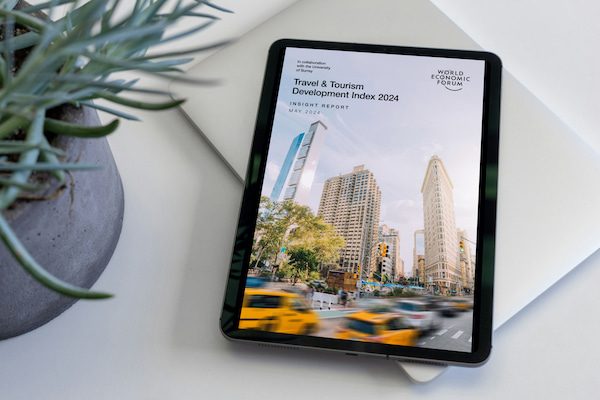 High-income economies in Europe and Asia-Pacific continue to lead the World Economic Forum Travel and Tourism Index, with the United States, Spain and Japan topping the rankings again.
High-income economies in Europe and Asia-Pacific continue to lead the World Economic Forum Travel and Tourism Index, with the United States, Spain and Japan topping the rankings again. 